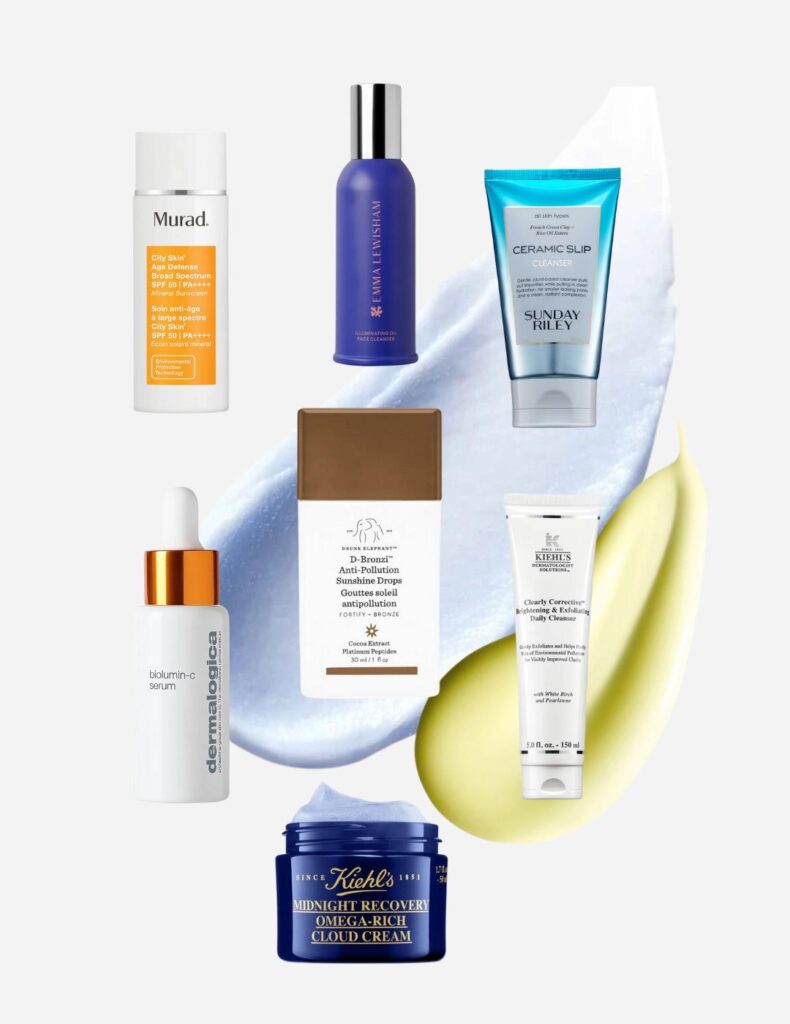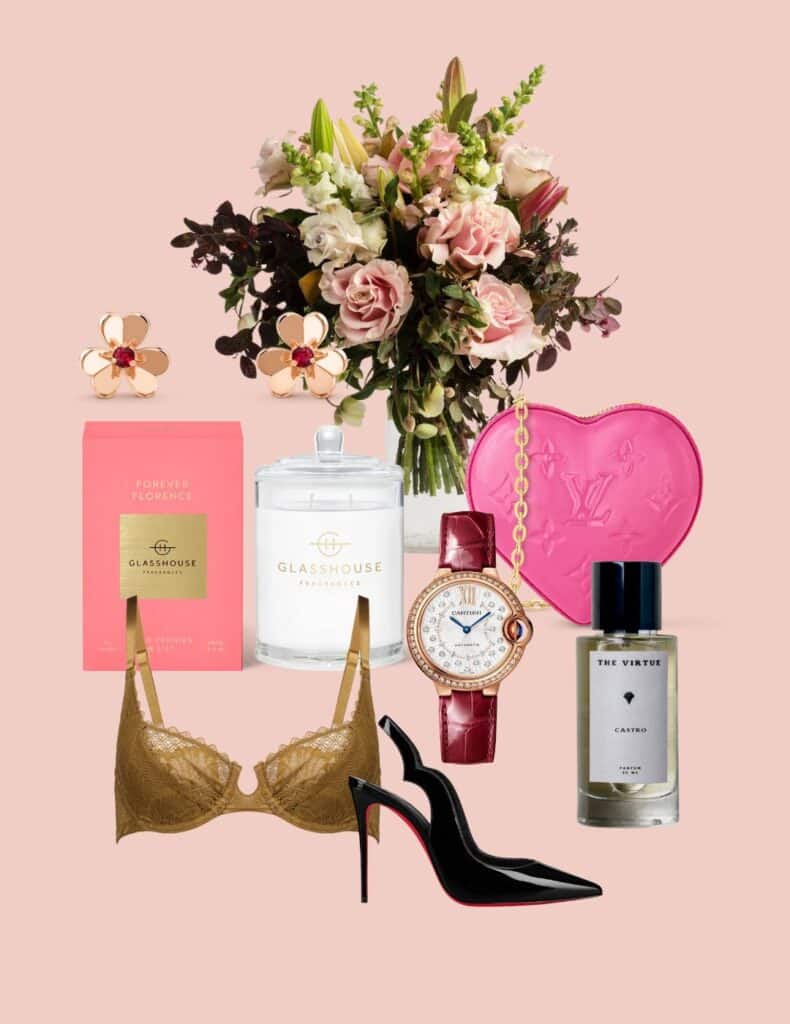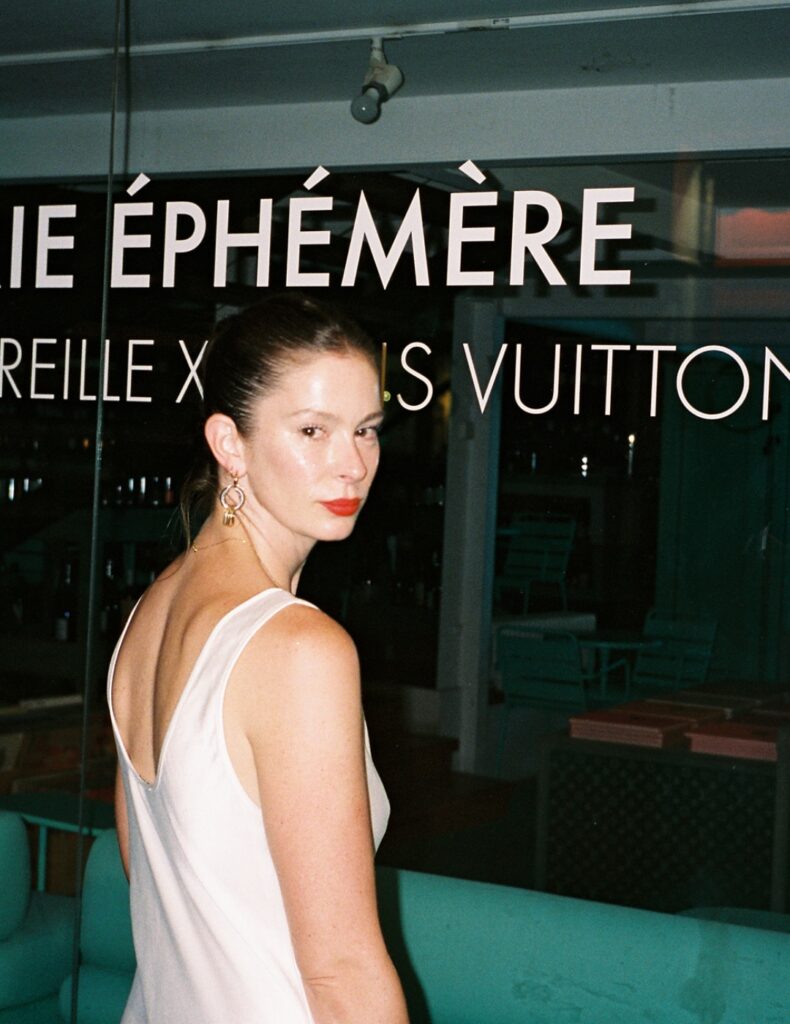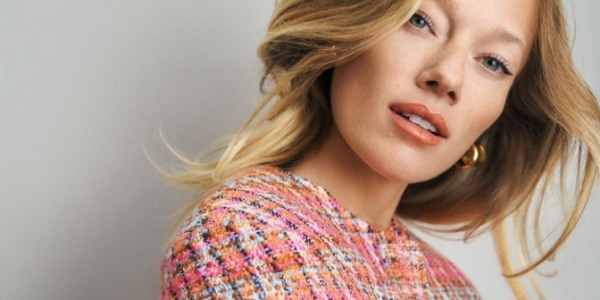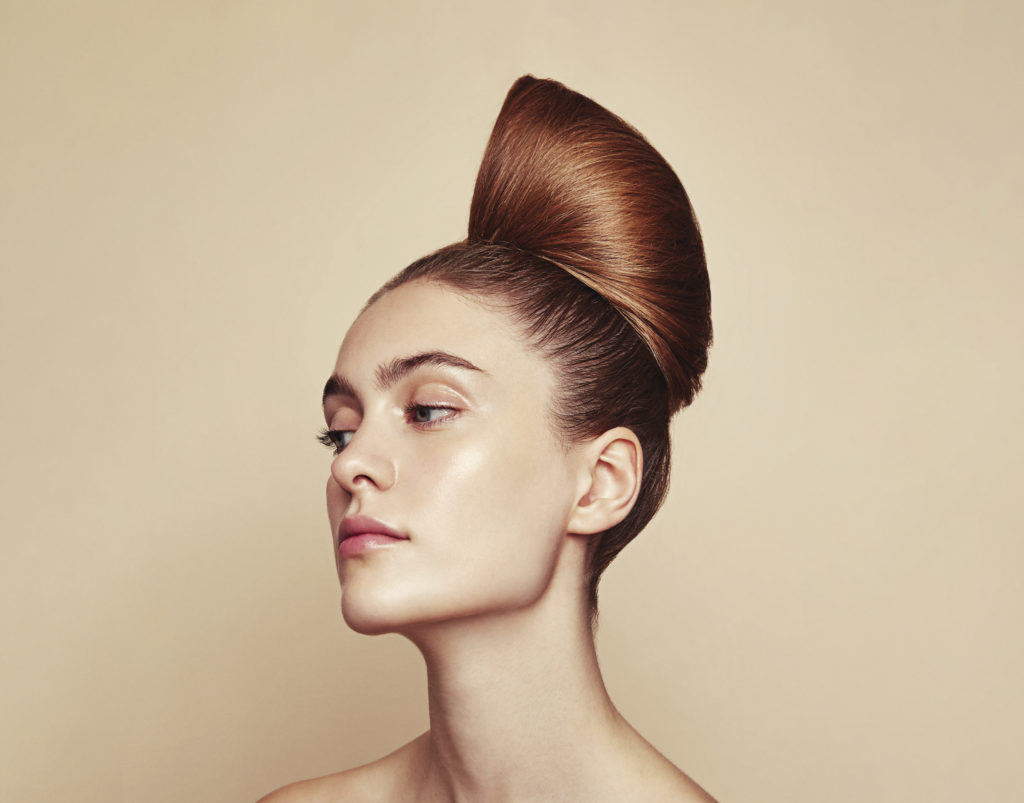
We all know exactly what it’s like to step out of the salon with a fresh new cut and colour and feel completely indestructible. After all, in the beauty world, there’s nothing quite like a new hairdo to boost confidence and uplift the spirits.
But, if you’ve ever looked back on a recent hair appointment and wondered why your dull, brittle, and damaged tresses have returned to haunt you, it might be time to give your approach to hair health a serious overhaul.
“There’s definitely this belief a good shampoo, cut, and treatment will fix everything,” says four-time New Zealand hairdresser of the year and Dyson New Zealand ambassador Michael Beel.
But, unfortunately, if you’re plagued with any number of common hair issues, a remedy isn’t as simple as a trip to the salon for just a trim, wash, and colour.
As Beel explains, hair has a lifespan of up to seven years — that means, by the time hair reaches your shoulders, it has had seven years’ worth of damage, exposure to pollution and the harsh New Zealand sun, heat styling, and colouring.
And then there’s the often- forgotten scalp — the place where healthy hair begins. “If the scalp is really dry or oily or is clogged up with dandruff, new healthy hair will struggle to grow,” explains Beel.
“There is a whole number of things — [from] diet to stress — that play a factor in scalp health. But the scalp is where it all comes from.”
Despite us all understanding just how uplifting great hair can make us feel, many common hair problems — dandruff, dry scalp, hair fall, and breakage — remain taboo topics, even when we find ourselves in the salon seat. Since we rarely hear these issues being discussed openly, it can be nerve- racking to pipe up and ask your hairdresser for some expert advice.
It might help to know that you’re not the only one who might feel a little awkward about unspoken yet incredibly common hair dilemmas. Beel admits that it’s not just the client who finds these topics tricky to navigate — hairdressers also struggle. “A lot of hairdressers don’t know how to approach these issues confidently without making a client feel self-conscious,” Beel explains.
“Some hairdressers don’t find it easy to say, ‘Oh hey, you’ve got a little bit of dry scalp or patch of thinning hair. Here’s what we can do about that.’”
After all, hairdressers are well aware of just how great that time spent at the salon can make us feel.
“Our job as a hairdresser is to make people feel beautiful and more confident when they walk out of the salon with a great cut and a great colour. No one wants to say, ‘Oh, you’ve got a really dry scalp’,” Beel says.
If these hair woes are as prevalent as Beel says they are — every day he sees around two or three clients out of 12 with a hair or scalp concern — why are we, and hairdressers, embarrassed to talk about them?
Blame it on ridiculous and unattainable beauty standards, says Beel. “Society has this expectation that we should look amazing 100 per cent of the time,” he says. The reality is, a dry scalp and hair breakage can happen to anyone. “It’s really no different to having dry skin,” says Beel.
Haircare for thought
If having a dry scalp — or various other hair concerns — is no different from having a dehydrated complexion — which, let’s face it, we all suffer occasionally — then perhaps it’s time to start approaching our hair with the same care and thought as our skincare routine.
If our skin is giving us grief, most of us know to enlist the help of a great skin therapist. If our scalp or hair is unhappy, your hairdresser is the best place to start. “It might be a little bit awkward to have these conversations at first, but, at the end of the day, it starts a really important conversation,” says Beel.
Breaking down some of the stigma attached to certain hair problems and understanding their causes is helpful too. A dry scalp and dandruff are two very unique conditions, explains Beel, and neither is caused by poor hair hygiene.
Dandruff — which is often more common in teenagers — is usually oily in appearance and is caused by a chemical imbalance that occurs when the scalp overproduces skin cells. A dry scalp has various causes and is more common than dandruff and is usually easier to solve.
Whereas dandruff might require a medicated shampoo, dry scalp — which Beel frequently sees in the salon — can benefit from a serious treatment routine. While an at-the-basin treatment or take-home salon- quality product might feel like a hairdresser is merely trying to upsell, using the right products makes all the difference where hair and scalp health is concerned.
Although it’s very tempting to reach for whatever is in the haircare aisle at the supermarket, not all shampoos and conditioners are created equal.
“Using supermarket-stocked shampoos and conditioners with lots of sulphates can strip the hair of moisture and dry out the scalp,” explains Beel. And while he says that we really shouldn’t need to wash our hair every day, those of us who insist on doing so need to consider the products they’re using daily carefully.
“If you’re a shampoo every day person, you need to invest in a very gentle, moisturising shampoo, so you’re not drying the scalp out and stripping moisture away,” he says.
And although our haircare routine may not require quite as many steps as our visage routine, Beel says we shouldn’t ever underestimate a good treatment.
“Kiwi women don’t tend to do treatments at home, but it’s a good habit to get into. Your hair will thank you for it.”
Hair fall is another common problem that Beel sees in the salon, and although it can be rather frightening, it is temporary. “It can be caused by stress, diet, a medication,
or pregnancy,” explains Beel.
In fact, ‘Why is my hair falling out?’ was one of the most searched beauty-related queries last year during the peak of the pandemic.
Fortunately, as worrying as stress-related hair fall can be, Beel says that it takes a while, but hair does grow back. It’s hair loss and some types of alopecia that are permanent. “Unfortunately, there’s no amount of shampoo or treatments that will fix that, so that’s when a hairdresser should recommend you see a trichologist.”
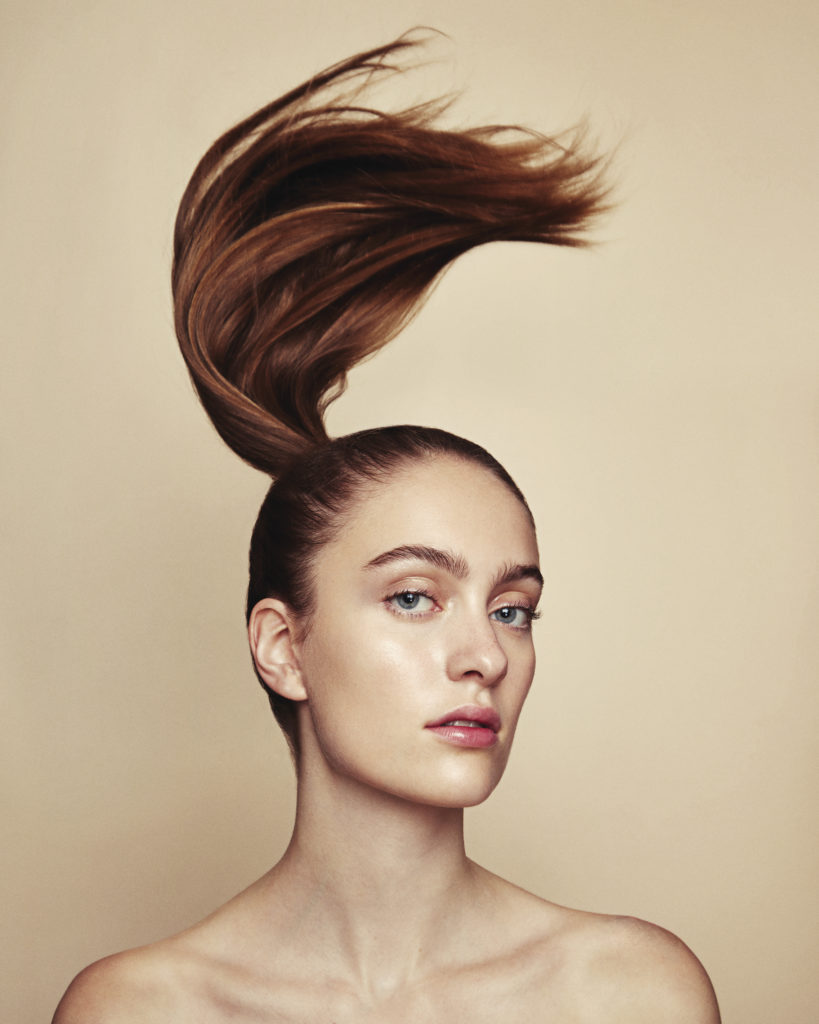
Prevention is key
Breakage-induced hair fall is another commonplace hair dilemma that doesn’t always get enough attention. If you’ve ever struggled to grow your hair past a certain length, breakage could be to blame. “Quite often, super fine hair will only grow to a certain length and then it just breaks, and it feels like it’s impossible to grow your hair,” Beel explains.
While genetics can play a role, often colouring and heat damage are to blame. In short, this means that heat protection, leave-in treatments, and putting the heated styling tools down now and again really should be non-negotiable.
“Prevention is better than the cure,” says Beel. “If you can do regular treatments at home, you will save your hair. You’ll strengthen it and give it the nourishment, the moisture, the protein it needs.” If it’s over-colouring that’s contributing to the problem, Beel says that it doesn’t mean you have to give up your regular colour: it just might mean taking a slightly less intensive approach, such as balayage or ombre. “You don’t have to get it touched up every six weeks; you can let it soften out and get the effect you want while caring for your hair.”
Going grey gracefully
While grey hair certainly used to be a bit of a taboo hair topic that many just sought to resolve with a full head of colour or a serious chop, Beel thinks that our attitudes towards grey hair have slowly but surely started to change.
“Coming out of lockdown last year, when salons were closed for 10 weeks, a lot of clients got used to their grey hair and were OK with it coming through and have stuck with it,” he says.
Even though there has been a definite shift in thinking, there is still one mindset regarding grey hair that Beel would like to see challenged. “It’s such a Kiwi and an Aussie thing that when women reach a certain age or go grey … [they] feel that they have to have a short haircut,” he says. “If you want longer hair and you’re older, it’s definitely possible.” All you need to do, says Beel, is have those open conversations with your hairdresser about how you look after it. “If you want long hair, have long hair,” he says. “It’s just a bit more maintenance.”
Unfortunately, ageing isn’t always kind to tresses, and grey hair does need more TLC. Beel explains that our hair’s texture changes as it goes grey, plus once-hydrated hair tends to become dehydrated and dry. “You just need to style it, so it looks fresh and groomed, and it needs a lot more moisture, but it definitely is possible to have gorgeous grey hair.”
While there’s plenty we can do ourselves to help get the hair of our dreams — there’s no time like the present to start weekly at-home hair treatments — your hairdresser should be your port of call for anything hair related that you’re unsure of.
A great hairdresser, says Beel, should be asking much more than simply, ‘What do you want to do with your hair today?’ “They should be invested in asking more questions while really assessing the hair and the scalp,” he says.
And, as great as that cut and colour can make us feel, at the end of the day, Beel says putting your head in the sand and just hoping your hair and scalp problems will go away isn’t going to fix anything. “Start having an open conversation with your hairdresser now.”
As he points out, if you’ve been going to them for a while, then they probably know a fair bit about you already. “Use that time to sit down and talk about what you want to achieve and what your concerns are. Make 2021 the year you achieve your hair goals.”


